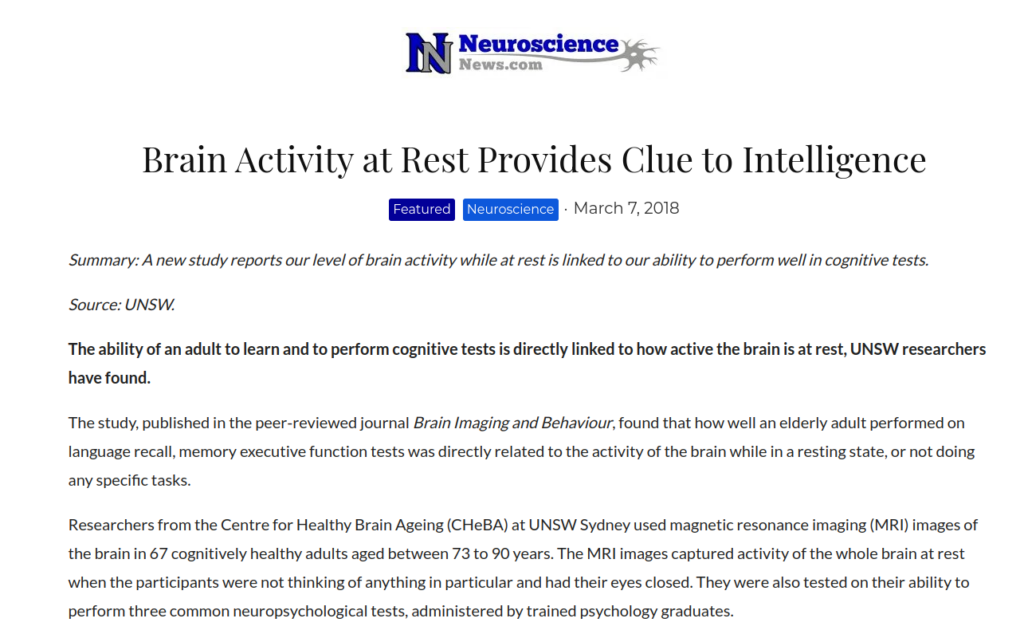Publication
Neuroscience News
Abstract
The ability of an adult to learn and to perform cognitive tests is directly linked to how active the brain is at rest, UNSW researchers have found.
Web and Email Links
Related Listings
Journal
Behavior Modification
Sleep latency changes following behavioral interventions for sleep-onset insomnia are only moderate because the majority of insomniacs do not achieve good sleeper status at posttreatment. This study evaluated the efficacy of a multifactor behavioral intervention consisting of stimulus control and relaxation-response training (n = 10) compared to stimulus control alone (n = 10) for sleep-onset insomnia. Only the multifactor subjects' mean posttest sleep latency fell within the good sle […]
Journal
Journal of American College Health
·
The authors examined the effect of a 6-week mind/body intervention on college students' psychological distress, anxiety, and perception of stress. One hundred twenty-eight students were randomly assigned to an experimental group (n = 63) or a waitlist control group (n = 65). The experimental group received 6 90-minute group-training sessions in the relaxation response and cognitive behavioral skills. The Symptom Checklist-90-Revised, Spielberger State-Trait Anxiety Inventory, and the […]
Journal
Neurobiology of Stress
Journal devoted to the neurobiology of stress

